This article was medically reviewed by Luba Lee, FNP-BC, MS. Luba Lee, FNP-BC is a Board-Certified Family Nurse Practitioner (FNP) and educator in Tennessee with over a decade of clinical experience. Luba has certifications in Pediatric Advanced Life Support (PALS), Emergency Medicine, Advanced Cardiac Life Support (ACLS), Team Building, and Critical Care Nursing. She received her Master of Science in Nursing (MSN) from the University of Tennessee in 2006.
There are 11 references cited in this article, which can be found at the bottom of the page.
wikiHow marks an article as reader-approved once it receives enough positive feedback. In this case, 100% of readers who voted found the article helpful, earning it our reader-approved status.
This article has been viewed 607,026 times.
Cortisol is a stress-induced chemical that is released by the adrenal gland. While some cortisol is beneficial for survival, some people overproduce cortisol. When this happens, you may notice you feel anxious, stressed out and have a tendency to gain weight. It is imperative to take action, once you notice any or all of these symptoms. Reducing the amount of cortisol produced within your body can have a positive effect on your overall health and leave you feeling more relaxed and balanced.
Steps
Making Changes to Your Diet
-
1Cut back or eliminate all drinks with large amounts of caffeine in them. This includes all sodas, energy drinks, and coffee. Drinking caffeine causes a spike in cortisol levels. The good news, if there is any, is that cortisol responses are reduced, but not eliminated, in people who drink caffeine regularly.[1]
- If you enjoy drinking caffeinated drinks and don't want to cut them out, you can instead drink them at the best possible times. Most people experience their peak cortisol levels from 8:00 a.m. to 9:00 a.m., 12:00 p.m. to 1:00 p.m., and 5:30 p.m. to 6:30 p.m.[2] You can schedule your coffee breaks around these times, such as at 7:00 a.m., 10:00 a.m., and anytime between 1:30 p.m. to 5:00 p.m. This way you can maintain your energy levels without spiking your cortisol levels too much.
-
2Reduce or eliminate processed foods and sugar in your diet. Processed foods, especially simple carbohydrates and sugar, cause a spike in cortisol.[3] Too many processed foods increase blood sugar levels, which in turn causes you to feel anxious. The best way to eliminate this reaction is to cut out the processed foods, though reducing them can also help. Try to avoid the following processed foods:[4]
- White bread
- "Regular" pasta (not whole wheat)
- White rice
- Candies, cakes, chocolates, etc.
Advertisement -
3Make sure you're getting enough water. One study has found that just a half-liter of dehydration can raise cortisol levels.[5] Dehydration is nasty because it's a vicious cycle: stress can cause dehydration, and dehydration can cause stress. Make sure you sip plenty of water throughout the day to cut back on your chance of unhealthy cortisol levels.
- If your urine is darker colored when you go pee, it's probably a sign that you're not drinking enough water. Adequately-hydrated individuals have urine that is light, almost water-like, in appearance.
-
4Take an ashwagandha supplement to help manage your cortisol levels. Ashwagandha is an herb that helps to balance cortisol levels. If your cortisol is high, the ashwagandha can lower it by a significant amount. Additionally, it can help you feel less stressed or anxious.[6]
- However, you should check with your doctor before taking any medications, especially if you are taking other medications.
- You can find ashwaganda either online or in the supplement section of your grocery store.
- There are no adverse side effects reported for this supplement.
-
5Try out rhodiola when your cortisol is high. Rhodiola is an herbal supplement related to ginseng, and a popular folk remedy for lowering cortisol. It reputedly ramps up your energy, helps you burn fat, and lowers your cortisol levels while it's at it.
-
6Get more fish oil into your diet. According to doctors, just 2,000 mg of fish oil per day lowers your cortisol levels.[7] If you don't want to chew down supplements, you can eat the following fish for healthy supplies of fish oil:
- Salmon
- Sardines
- Mackerel
- Sea bass
Making Changes to Your Lifestyle
-
1Manage your stress levels. Stress causes high levels of cortisol, as your body responds to stress by releasing more cortisol. If you experience high levels of stress, then your cortisol levels can quickly get out of control.[8] Luckily, you can lower your levels if you learn to manage stress.
- Use mindfulness to help you lower your stress. Simply being in the moment can help you avoid feeling stressed.
- Try relaxation techniques like breathing exercises, visualization, or journaling.
- Create an emergency coping box and fill it with a soft blanket, an inspiring book, a relaxing activity, a piece of dark chocolate, and a scented aromatherapy oil in a relaxing scent, such as lavender. You can include other items that help you relax, as well. For example, some people might include a back scratcher or massaging ball.
-
2Maintain a sleep schedule. Rising and going to bed at the same times every day can have a big effect on your stress and cortisol. Not only will it help lower your stress levels, it also helps your body better regulate cortisol. Getting a good night's sleep will help you stay calm and maintain lower levels of cortisol.
- Maintain a pre-bedtime sleep routine to help you go to sleep more easily. Relax by turning down the thermostat, getting cozy, and doing an activity that relaxes you, such as reading or listening to calming music. You may also spray a relaxing aromatherapy scent, such as lavender.[9]
-
3Prepare a pot of hot black tea. Scientists have discovered that drinking black tea was found to lower overall cortisol levels in a group of people performing stressful tasks.[10] So next time you feel the cortisol bubbling up and threatening to unleash itself in a torrent of stress, grab a cup of English breakfast tea and zen out.
-
4Try meditation techniques. Meditation activates the Vagus nerve, which triggers a response in your body to lower cortisol levels, among other things.[11] Meditation techniques can run the gamut, from taking deep breaths to allowing your mind to wander to a peaceful place. For best results, participate in meditation for 30 minutes a day, three to four times a week. After the first session, you should see a significant difference in how your body feels.
- Sit in a quiet, dark, room. Allow your mind to meditate. If you need help relaxing, visualize a quiet, peaceful place. Imagine how your body feels when it is relaxed. Try to recreate this feeling within your body. This helps to relieve muscle tension within the body.
- Allow the eyes to close. Take deep breaths in and out until you notice your heart rate slowing down. Notice the beating of your heart and its sounds when you are relaxed. Imagine that all of the tension is radiating out of your body through your fingertips and toes. Feel the release of tension throughout your entire body.
-
5Watch a funny movie or listen to a funny story. Joyous laughter can actually curb your body's production of cortisol, according to FASEB.So sidle up to a funny friend or remind yourself of a mirthful memory in order to lower cortisol.
-
6Try adaptive exercises to target a lowering of your cortisol. Exercise is a stress-buster, right? So wouldn't all exercise be beneficial in lowering cortisol? Not exactly. The problem is that running and other cardio exercises raise your heart rate, ultimately increasing cortisol.
- Try yoga or Pilates for an adaptive exercise that burns calories, works your muscles, and lowers cortisol too.
- Try other adaptive exercises using the Wii console, for example, to get your heart rate up without that unhealthy spike in cortisol.
- Don't over exercise, as this can increase your levels of cortisol.
-
7Incorporate play into your life. Set aside time each day to have some fun, and make a point to do something fun on your days off. Playing often can help you enjoy life more, avoid stress, and keep your cortisol levels in check. On busy days, try to have fun for at least 15 minutes a day.
- For example, you could go out for ice cream, enjoy dinner out, play a board game with your friend or loved one, watch a movie, walk your dog in the park, do a puzzle, play with your pet, or any other activity you enjoy.
- On the weekend, go to the beach, go bowling, play a recreational sport, host a game night, go to an art opening, or take a class to learn about a new hobby.
-
8Listen to some tunes. Music therapy has been shown to reduce cortisol levels in patients undergoing screening colonoscopy.[12] So the next time you're feeling stressed or slammed, put on some soothing music and let it put a curtain on your cortisol.
Expert Q&A
-
QuestionWhat should I do if I realize I'm having an anxiety attack?
 Dr. Niall Geoghegan, PsyDDr. Niall Geoghegan is a Clinical Psychologist in Berkeley, CA. He specializes in Coherence Therapy and works with clients on anxiety, depression, anger management, and weight loss among other issues. He received his Doctorate in Clinical Psychology from the Wright Institute in Berkeley, CA.
Dr. Niall Geoghegan, PsyDDr. Niall Geoghegan is a Clinical Psychologist in Berkeley, CA. He specializes in Coherence Therapy and works with clients on anxiety, depression, anger management, and weight loss among other issues. He received his Doctorate in Clinical Psychology from the Wright Institute in Berkeley, CA.
Clinical Psychologist Try to focus on just breathing slow and deep in through your nose. Hold it for three counts, out through pursed lips, nice and slow. Circular, deep breathing can calm your system down. Once you are breathing deep and slow, try to feel your arms, legs, and ground beneath your feet.
Try to focus on just breathing slow and deep in through your nose. Hold it for three counts, out through pursed lips, nice and slow. Circular, deep breathing can calm your system down. Once you are breathing deep and slow, try to feel your arms, legs, and ground beneath your feet. -
QuestionDoes green tea have the same effect as black tea?
 Luba Lee, FNP-BC, MSLuba Lee, FNP-BC is a Board-Certified Family Nurse Practitioner (FNP) and educator in Tennessee with over a decade of clinical experience. Luba has certifications in Pediatric Advanced Life Support (PALS), Emergency Medicine, Advanced Cardiac Life Support (ACLS), Team Building, and Critical Care Nursing. She received her Master of Science in Nursing (MSN) from the University of Tennessee in 2006.
Luba Lee, FNP-BC, MSLuba Lee, FNP-BC is a Board-Certified Family Nurse Practitioner (FNP) and educator in Tennessee with over a decade of clinical experience. Luba has certifications in Pediatric Advanced Life Support (PALS), Emergency Medicine, Advanced Cardiac Life Support (ACLS), Team Building, and Critical Care Nursing. She received her Master of Science in Nursing (MSN) from the University of Tennessee in 2006.
Board-Certified Family Nurse Practitioner Although the study cited above specifically mentions black tea, green tea also brings benefits. Also, green tea contains less caffeine than black tea. Since caffeine can spike cortisol, that's an important consideration. However, the benefits depend on the type and brand of green tea that you choose.
Although the study cited above specifically mentions black tea, green tea also brings benefits. Also, green tea contains less caffeine than black tea. Since caffeine can spike cortisol, that's an important consideration. However, the benefits depend on the type and brand of green tea that you choose. -
QuestionIs rhodiola really effective?
 Luba Lee, FNP-BC, MSLuba Lee, FNP-BC is a Board-Certified Family Nurse Practitioner (FNP) and educator in Tennessee with over a decade of clinical experience. Luba has certifications in Pediatric Advanced Life Support (PALS), Emergency Medicine, Advanced Cardiac Life Support (ACLS), Team Building, and Critical Care Nursing. She received her Master of Science in Nursing (MSN) from the University of Tennessee in 2006.
Luba Lee, FNP-BC, MSLuba Lee, FNP-BC is a Board-Certified Family Nurse Practitioner (FNP) and educator in Tennessee with over a decade of clinical experience. Luba has certifications in Pediatric Advanced Life Support (PALS), Emergency Medicine, Advanced Cardiac Life Support (ACLS), Team Building, and Critical Care Nursing. She received her Master of Science in Nursing (MSN) from the University of Tennessee in 2006.
Board-Certified Family Nurse Practitioner Yes. Rhodiola is an herbal supplement that helps you cope with stress. Since stress causes high levels of cortisol, lowering your stress levels can also reduce your cortisol levels. Before you take it, however, you should talk to your doctor.
Yes. Rhodiola is an herbal supplement that helps you cope with stress. Since stress causes high levels of cortisol, lowering your stress levels can also reduce your cortisol levels. Before you take it, however, you should talk to your doctor.
Warnings
- Speak with your doctor before taking any over the counter sleeping medication. This is because these sleeping medications may interfere with prescribed medications you are taking.⧼thumbs_response⧽
References
- ↑ http://www.ncbi.nlm.nih.gov/pmc/articles/PMC2257922/
- ↑ https://www.ncbi.nlm.nih.gov/pmc/articles/PMC3475279/
- ↑ http://www.huffingtonpost.com/sara-gottfried-md/cortisol_b_1589670.html
- ↑ http://www.webmd.com/food-recipes/features/carbohydrates?page=2
- ↑ http://www.webmd.com/diet/features/water-stress-reduction
- ↑ https://www.ncbi.nlm.nih.gov/pmc/articles/PMC3573577/
- ↑ http://www.huffingtonpost.com/sara-gottfried-md/cortisol_b_1589670.html
- ↑ https://www.mayoclinic.org/healthy-lifestyle/stress-management/in-depth/stress/art-20046037
- ↑ http://healthysleep.med.harvard.edu/healthy/getting/overcoming/tips
About This Article
To reduce the stress hormone cortisol in your body, try making some simple changes to your diet. Cut back or completely eliminate caffeine, and stay away from sugary and highly processed foods and drinks. Since dehydration can increase cortisol levels, drink plenty of water throughout the day. Some foods, such as fish, may also help reduce cortisol. Talk to your doctor about trying supplements like fish oil, ashwagandha, or rhodiola. Stress can also increase your cortisol levels, so do things you find relaxing, such as meditation, light exercise, or creative hobbies. Maintaining a consistent sleep schedule is also a great way to reduce stress and manage your cortisol levels. For tips on supplements you can try to manage cortisol levels, read on!
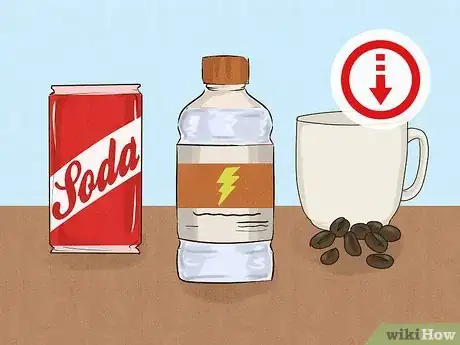
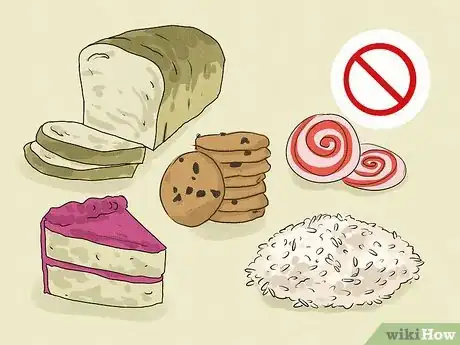




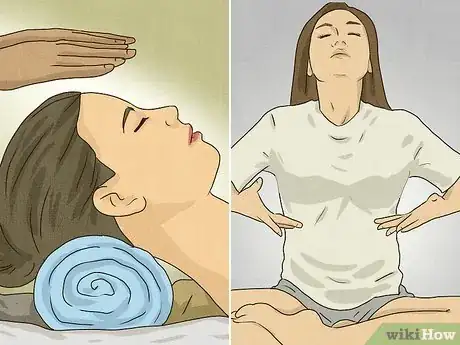

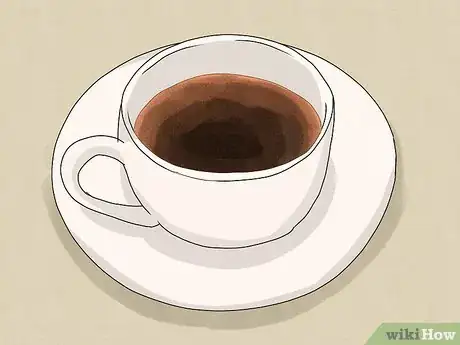


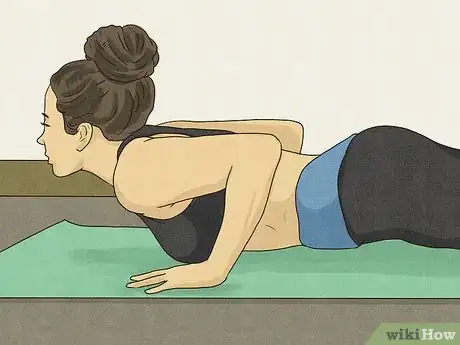


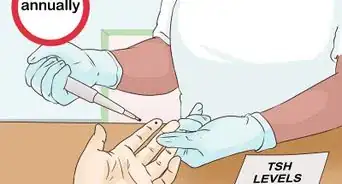
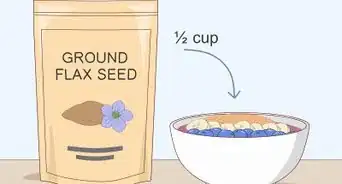


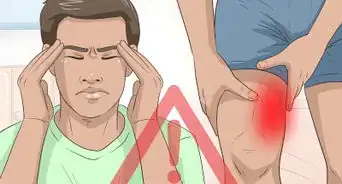







-Step-12-Version-2.webp)











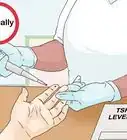
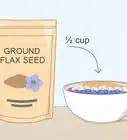





































Medical Disclaimer
The content of this article is not intended to be a substitute for professional medical advice, examination, diagnosis, or treatment. You should always contact your doctor or other qualified healthcare professional before starting, changing, or stopping any kind of health treatment.
Read More...